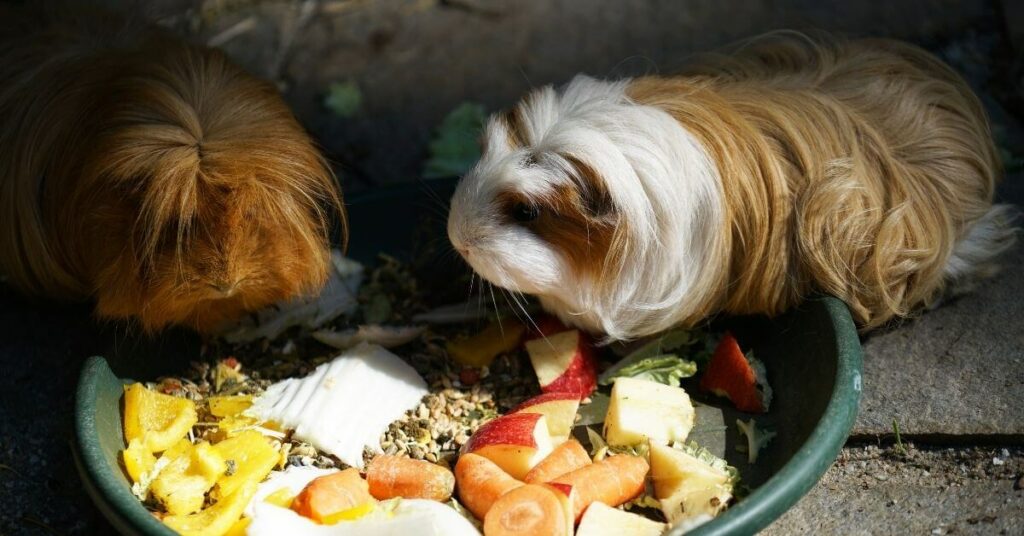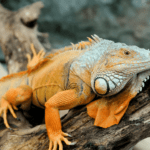Table of Contents
Abyssinian Guinea Pigs, with their unique rosetted coats and lively personalities, make delightful pets. Ensuring they receive a balanced diet is crucial for their health and well-being. This guide provides valuable insights into the feeding guide for the Abyssinian Guinea Pig, helping you keep your furry friend healthy and happy.

1. Provide Unlimited Fresh Hay
Fresh hay is the cornerstone of a guinea pig’s diet:
- Timothy Hay: Offer high-quality Timothy hay, which is ideal for adult guinea pigs due to its high fiber content and low calcium.
- Alfalfa Hay: Suitable for young, growing guinea pigs and pregnant or nursing females, but should be limited for adults due to its high calcium content.
- Fresh Supply: Ensure your guinea pig has constant access to fresh hay to aid digestion and maintain dental health.
2. Include Fresh Vegetables Daily
Fresh vegetables are essential for providing necessary vitamins and minerals:
- Leafy Greens: Offer a variety of leafy greens such as romaine lettuce, kale, and parsley daily.
- Other Vegetables: Include bell peppers, carrots, cucumbers, and zucchini in their diet.
- Introduce Gradually: Introduce new vegetables slowly to avoid digestive upsets.
3. Offer a Balanced Pellet Diet
High-quality guinea pig pellets provide essential nutrients:
- Vitamin C Fortified: Choose pellets fortified with vitamin C, as guinea pigs cannot produce this vitamin on their own.
- Portion Control: Provide about 1/8 cup of pellets per day per guinea pig to prevent overeating and obesity.
- Quality Ingredients: Ensure the pellets are made from quality ingredients without artificial colors or preservatives.
4. Fresh Fruits in Moderation
Fruits can be a tasty treat but should be given in moderation:
- Small Portions: Offer small pieces of fruits such as apples, strawberries, and blueberries occasionally.
- High Sugar Content: Due to their high sugar content, fruits should be limited to avoid health issues.
- Variety: Rotate the types of fruits offered to provide a range of nutrients.
5. Ensure Access to Fresh Water
Constant access to fresh water is crucial for your guinea pig’s health:
- Clean Water: Change the water daily to keep it fresh and clean.
- Water Bottles: Use a water bottle with a sipper tube to prevent contamination.
- Monitor Intake: Ensure your guinea pig is drinking enough water, especially during hot weather.
6. Avoid Harmful Foods
Some foods can be harmful or toxic to guinea pigs and should be avoided:
- Foods to Avoid: Do not feed your guinea pig onions, garlic, potatoes, chocolate, caffeine, or dairy products.
- Check Labels: Always check labels on treats and packaged foods to ensure they do not contain harmful ingredients.
- Safe Treats: Stick to safe, guinea pig-specific treats and natural options like fruits and vegetables.
7. Monitor Health and Diet
Regularly monitor your guinea pig’s health and diet to ensure they are thriving:
- weight Checks: Regularly check your guinea pig’s weight to ensure they are maintaining a healthy weight.
- Behavioral Changes: Watch for changes in eating habits or behavior that may indicate health issues.
- Vet Visits: Schedule regular veterinary check-ups to monitor overall health and address any dietary concerns.
Conclusion on Feeding Your Abyssinian Guinea Pig
Following this feeding guide for the Abyssinian Guinea Pig ensures that your pet receives a balanced and nutritious diet, contributing to their overall health and happiness. Providing unlimited fresh hay, a variety of fresh vegetables, a balanced pellet diet, and occasional fruits, along with constant access to fresh water, will keep your guinea pig thriving. Always avoid harmful foods and monitor their health and diet regularly. For more information on guinea pig care, visit the ASPCA and Guinea Lynx.
FAQs on Feeding Your Abyssinian Guinea Pig
What is the best type of hay for my Abyssinian Guinea Pig?
Timothy hay is ideal for adult guinea pigs due to its high fiber content and low calcium, while alfalfa hay is suitable for young, growing guinea pigs and pregnant or nursing females.
How often should I feed my guinea pig fresh vegetables?
Provide fresh vegetables daily, offering a variety of leafy greens and other vegetables like bell peppers, carrots, and cucumbers.
How much pellet food should I give my guinea pig?
Provide about 1/8 cup of high-quality, vitamin C-fortified pellets per day per guinea pig to prevent overeating and obesity.
Can I give my guinea pig fruits as treats?
Yes, fruits like apples, strawberries, and blueberries can be given in small portions occasionally due to their high sugar content.
What foods should I avoid feeding my guinea pig?
Avoid feeding your guinea pig onions, garlic, potatoes, chocolate, caffeine, and dairy products, as they can be harmful or toxic.
How can I ensure my guinea pig is getting enough water?
Provide constant access to fresh water using a water bottle with a sipper tube, and change the water daily to keep it clean.











